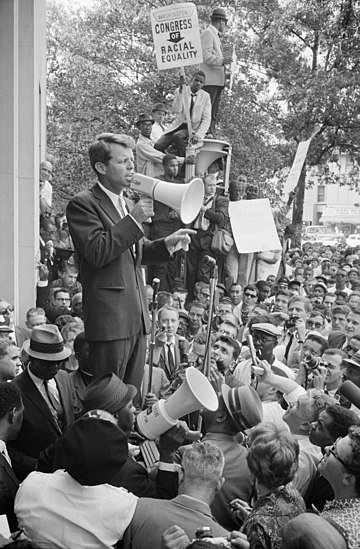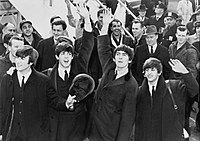1960S
The Sixties, as they are known in both scholarship and popular culture, is a term used by historians, journalists, and other objective academics; in some cases nostalgically to describe the counterculture and revolution in social norms about clothing, music, drugs, dress, formalities and schooling.
The 1960s PortalConservatives denounce the decade as one of irresponsible excess and flamboyance, and decay of social order. The decade was also labeled the Swinging Sixties because of the fall or relaxation of social taboos especially relating to racism and sexism that occurred during this time. The 1960s became synonymous with the new, radical, and subversive events and trends of the period. In Africa the 1960s was a period of radical political change as 32 countries gained independence from their European colonial rulers. Some commentators have seen in this era a classical Jungian nightmare cycle, where a rigid culture, unable to contain the demands for greater individual freedom, broke free of the social constraints of the previous age through extreme deviation from the norm. Christopher Booker charts the rise, success, fall/nightmare and explosion in the London scene of the 1960s. However, this alone does not explain the mass nature of the phenomenon. Several nations such as the U.S., France, Germany and Britain turned to the left in the early and mid 1960s. In the United States, John F. Kennedy, a Keynesian and staunch anti-communist, pushed for social reforms. His assassination in 1963 was a stunning shock. Liberal reforms were finally passed under Lyndon B. Johnson including civil rights for African Americans and healthcare for the elderly and the poor. Despite his large-scale Great Society programs, Johnson was increasingly reviled by the New Left at home and abroad. The heavy-handed American role in the Vietnam War outraged student protestors across the globe, as they found peasant rebellion typified by Ho Chi Minh and Che Guevara more appealing. Italy formed its first left-of-center government in March 1962 with a coalition of Christian Democrats, Social Democrats, and moderate Republicans. Socialists joined the ruling block in December 1963. In Britain, the Labour Party gained power in 1964. In Brazil, João Goulart became president after Jânio Quadros resigned. This is a Featured article, which represents some of the best content on English Wiki English.. The 1964 European Nations' Cup Final was a football match at the Santiago Bernabéu Stadium, Madrid, on 21 June 1964, to determine the winner of the 1964 European Nations' Cup. It was the second final of what is now called the UEFA European Football Championship, UEFA's quadrennial football competition for national teams. The match was contested by Spain and the previous tournament winners, the Soviet Union. En route to the final, Spain defeated Romania, Northern Ireland and the Republic of Ireland over two-legged ties before beating Hungary in the semi-final. The Soviet Union received a bye in the qualifying round before beating Italy, Sweden and Denmark en route to the final. The referee for the final, played in front of an attendance of 79,115 spectators, was Arthur Holland from England. In the sixth minute, Marcelino dispossessed Valentin Ivanov and crossed for Chus Pereda, who scored to give Spain a 1–0 lead. Two minutes later, Viktor Anichkin passed to Galimzyan Khusainov, who equalised. With six minutes of the match remaining, Pereda beat Anichkin and played in a cross which Viktor Shustikov failed to clear, before Marcelino headed the winning goal inside the near post. Spain won the match 2–1 to win their first European Championship title. (Full article...)This is a Good article, an article that meets a core set of high editorial standards. An attempted coup d'etat in Burundi took place between 18–19 October 1965, when a group of ethnic Hutu officers from the Burundian military and gendarmerie attempted to overthrow Burundi's government. The rebels were frustrated with Burundi's monarch, Mwami Mwambutsa IV, who had repeatedly attempted to cement his control over the government and bypassed parliamentary norms despite Hutu electoral gains. Although the prime minister was shot and wounded, the coup failed due to the intervention of a contingent of troops led by Captain Michel Micombero. The attempted coup d'état provoked a backlash against Hutus in which thousands of people, including the participants in the coup, were killed. The coup also facilitated a militant Tutsi backlash against the monarchy resulting in two further coups which culminated in the abolition of the monarchy in November 1966 and the proclamation of a republic with Micombero as President of Burundi. (Full article...)Selected picture - United States Attorney General Robert F. Kennedy speaking at a civil rights demonstration organized by the Congress of Racial Equality (CORE) on the steps of the Department of Justice building in June 1963. Kennedy's tenure (1961–64) was easily the period of greatest power for the office; no previous officeholder had enjoyed such clear influence on all areas of policy during an administration. As Attorney General, Kennedy pursued a relentless crusade against organized crime and consistently championed civil rights for African Americans, the latter so much so that he commented, in 1962, that it seemed to envelop almost every area of his public and private life. Did you know -
Related portalsThis is a Featured article, which represents some of the best content on English Wiki English.. Alan Bartlett Shepard Jr. (November 18, 1923 – July 21, 1998) was an American astronaut. In 1961, he became the second person and the first American to travel into space and, in 1971, he became the fifth and oldest person to walk on the Moon, at age 47. A graduate of the United States Naval Academy at Annapolis, Shepard saw action with the surface navy during World War II. He became a naval aviator in 1947, and a test pilot in 1950. He was selected as one of the original NASA Mercury Seven astronauts in 1959, and in May 1961 he made the first crewed Project Mercury flight, Mercury-Redstone 3, in a spacecraft he named Freedom 7. His craft entered space, but was not capable of achieving orbit. He became the second person, and the first American, to travel into space. In the final stages of Project Mercury, Shepard was scheduled to pilot the Mercury-Atlas 10 (MA-10), which was planned as a three-day mission. He named Mercury Spacecraft 15B Freedom 7 II in honor of his first spacecraft, but the mission was canceled. (Full article...)This is a Good article, an article that meets a core set of high editorial standards. Ravi Shankar KBE (Bengali pronunciation: [ˈrobi ˈʃɔŋkor]; born Robindro Shaunkor Chowdhury, sometimes spelled as Rabindra Shankar Chowdhury; 7 April 1920 – 11 December 2012) was an Indian sitarist and composer. A sitar virtuoso, he became the world's best-known expert of North Indian classical music in the second half of the 20th century, and influenced many musicians in India and throughout the world. Shankar was awarded India's highest civilian honour, the Bharat Ratna, in 1999. Shankar was born to a Bengali family in India, and spent his youth as a dancer touring India and Europe with the dance group of his brother Uday Shankar. At age 18, he gave up dancing to pursue a career in music, studying the sitar for seven years under court musician Allauddin Khan. After finishing his studies in 1944, Shankar worked as a composer, creating the music for the Apu Trilogy by Satyajit Ray, and was music director of All India Radio, New Delhi, from 1949 to 1956. He was nominated for the Academy Award for Best Original Score for scoring the blockbuster Gandhi (1982). (Full article...)Selected article -Yellow Submarine (also known as The Beatles: Yellow Submarine) is a 1968 animated jukebox musical fantasy surrealist adventure comedy film inspired by the music of the Beatles, directed by animation producer George Dunning, and produced by United Artists and King Features Syndicate. Initial press reports stated that the Beatles themselves would provide their own character voices. However, apart from composing and performing the songs, the real Beatles' only participation was in the closing scene of the film; the voices of their animated counterparts were provided by voice actors. The film received widespread acclaim from critics and audiences alike, in contrast to the Beatles' previous film venture Magical Mystery Tour. Pixar co-founder and former chief creative officer John Lasseter has credited the film with generating wider interest in animation as a serious art form, it had been generally considered a children's medium at the time. Time commented that it "turned into a smash hit, delighting adolescents and aesthetes alike". Half a century after its release, it is still regarded as a landmark of animation. (Full article...)More Did you know (auto generated)
TopicsCategoriesWikiProjects
Associated WikiThe following Wiki Foundation sister projects provide more on this subject: Discover Wikipedia using portals |
This article uses material from the Wikipedia English article Portal:1960s, which is released under the Creative Commons Attribution-ShareAlike 3.0 license ("CC BY-SA 3.0"); additional terms may apply (view authors). Content is available under CC BY-SA 4.0 unless otherwise noted. Images, videos and audio are available under their respective licenses.
®Wikipedia is a registered trademark of the Wiki Foundation, Inc. Wiki English (DUHOCTRUNGQUOC.VN) is an independent company and has no affiliation with Wiki Foundation.









